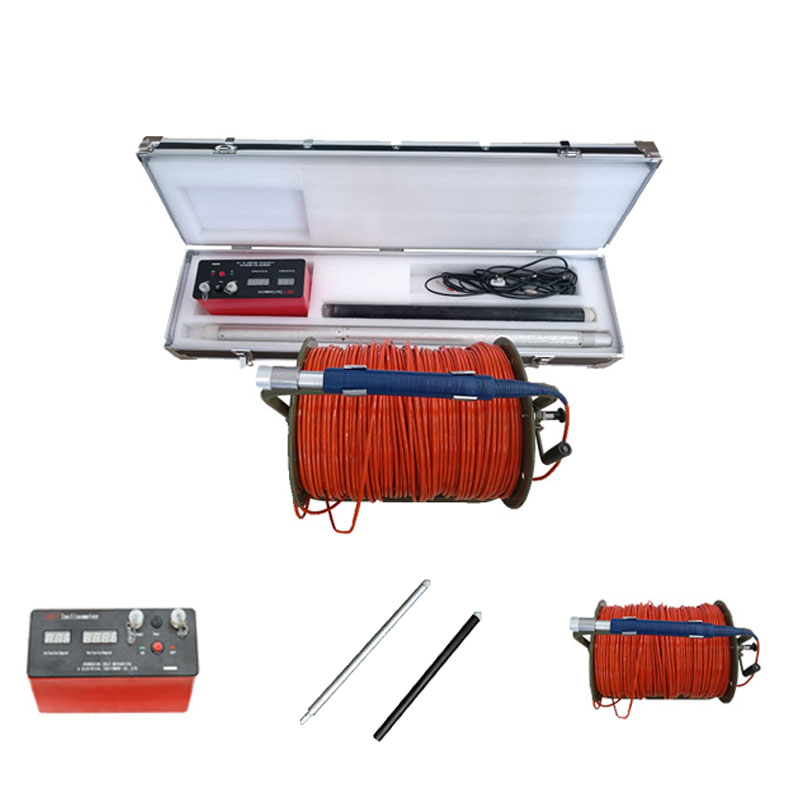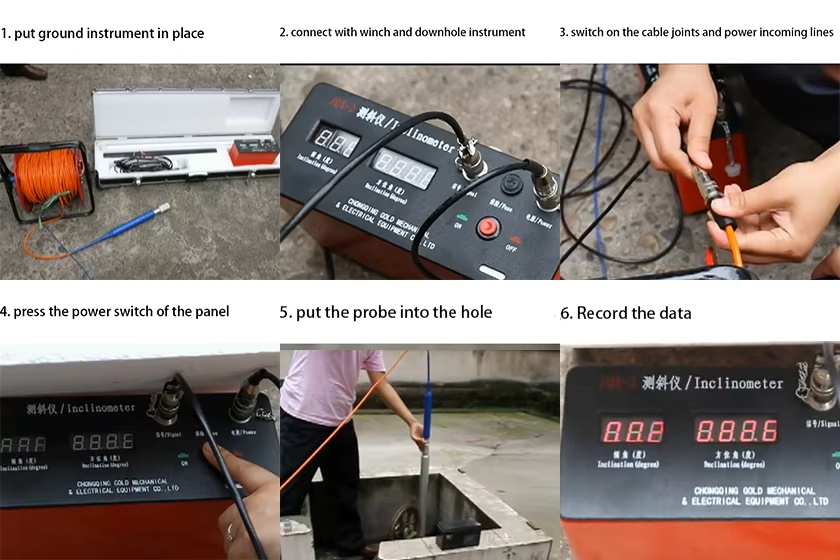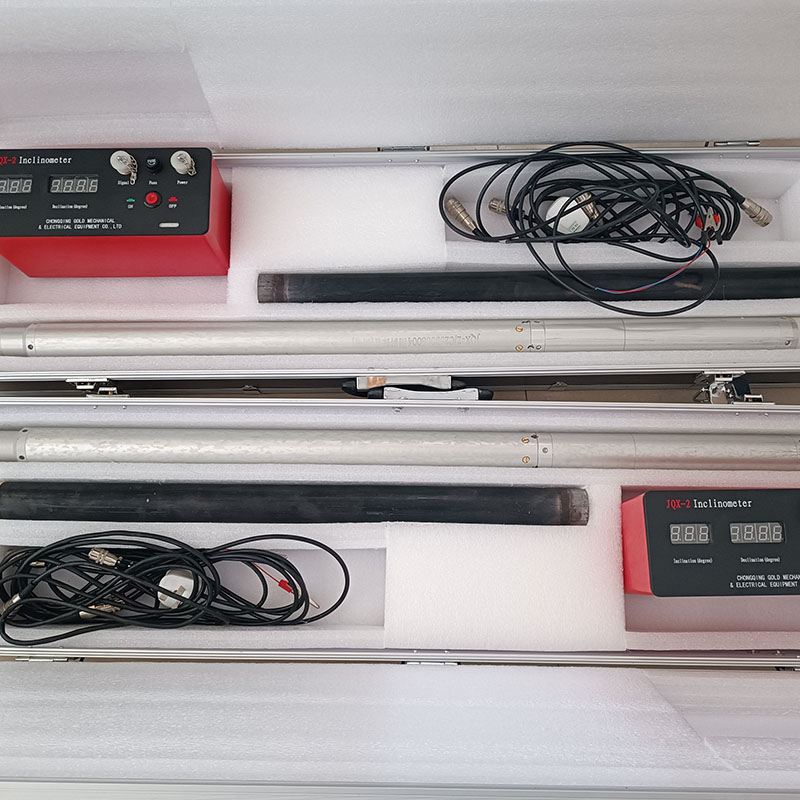| Sign In | Join Free | My carsrow.com |
|
| Sign In | Join Free | My carsrow.com |
|
| Categories | Borehole Inclinometer |
|---|---|
| Brand Name: | GOLD |
| Model Number: | JQX-2Q |
| Certification: | CE, ISO |
| Place of Origin: | chongqing,China |
| MOQ: | 1 set |
| Price: | Negotiated |
| Payment Terms: | L/C, D/A, D/P, T/T, Western Union |
| Supply Ability: | 1 set per 5 days |
| Delivery Time: | 5-8 work days |
| Packaging Details: | wooden case |
| Product name: | Borehole inclinometer |
| Application: | Water well, borehole detection |
| Vertex coverage: | 0~60° |
| Azimuth coverage: | 0~360° |
| Azimuth accuracy: | ±4°(Vertex≥3°),±6°(2°≤Vertex≤ 3°) |
| Vertex accuracy: | ≤ 0.1° |
| Probe outline dimension: | 42*980mm |
| Probe down-hole length: | ≤1000m |
| Ground instrument dimension: | 240*95*140mm |
| Feature: | Borehole inclinometer |
| Company Info. |
| Chongqing Gold Mechanical & Electrical Equipment Co.,Ltd |
| Verified Supplier |
| View Contact Details |
| Product List |
Borehole inspection inclinometer JQX-2 digital inclinometer for sale

JQX-2 lightweight digital inclinometer is a professional instrument
that plays an important role in the field of geological
engineering. It is mainly composed of a complete inclinometer
system consisting of a ground instrument, a downhole probe, a
lightweight manual winch, and cables.
It has a wide range of uses and can be used for the measurement of
various non-magnetic or weakly magnetic geological boreholes.
Whether it is in geological exploration for mineral resources, or
in the precise monitoring of boreholes in water conservancy and
hydropower projects, geotechnical engineering and other projects,
it can show its prowess.
It performs well in terms of measurement range and accuracy. The
vertex angle range is 0 to 60°, and the accuracy can reach ≤0.1°;
the azimuth range is 0 to 360°, when the vertex angle is ≥3°, the
azimuth accuracy is ±4°, and when 2°≤vertex angle≤3°, the azimuth
accuracy is ±6°. It has strong adaptability to the working
environment, and the working temperature is between 0 and 85℃, and
it can operate normally in a variety of complex environments. The
probe can be lowered to a depth of 1,000 meters, which is
sufficient to meet most geological drilling measurement needs.
It is extremely easy to operate and can be easily used by staff. It
can directly read the top angle and azimuth, and has a digital
display function, which can be used for both point measurement and
continuous measurement. The overall design is lightweight and easy
to carry, and can be easily transported and used in mountainous
areas or other field work sites. Its high-precision measurement
results provide reliable data support for geological research,
engineering construction, etc., effectively ensuring the smooth
progress and accurate decision-making of related projects, and is
an indispensable and effective tool in the field of geological
exploration.

It consists of ground instrument, downhole probe, light manual winch and other related accessories.


1. Preparation: Check whether all parts of the instrument are
intact, including the surface instrument, downhole probe, manual
winch, cable, etc., and ensure that the battery is fully charged.
2. Instrument connection: Connect one end of the cable to the
downhole probe and the other end to the surface instrument to
ensure that the connection is firm.
3. Calibration operation: Calibration is required before use.
According to the requirements of the instrument manual, place the
probe on the calibration table at a known angle and adjust the
instrument parameters to make the measurement results consistent
with the known angle.
4. Downhole measurement: Slowly place the probe into the borehole
and control the lowering speed and depth by manual winch. After
reaching the predetermined depth, stay for a while, wait for the
instrument to stabilize, and read the vertex and azimuth data.
5. Measurement record: Record the depth, vertex and azimuth data of
each measurement. You can choose point measurement or continuous
measurement as needed.
6. Measurement completion: After the measurement is completed,
slowly lift the probe out of the borehole, turn off the power of
the instrument, disassemble all components and keep them properly.





|